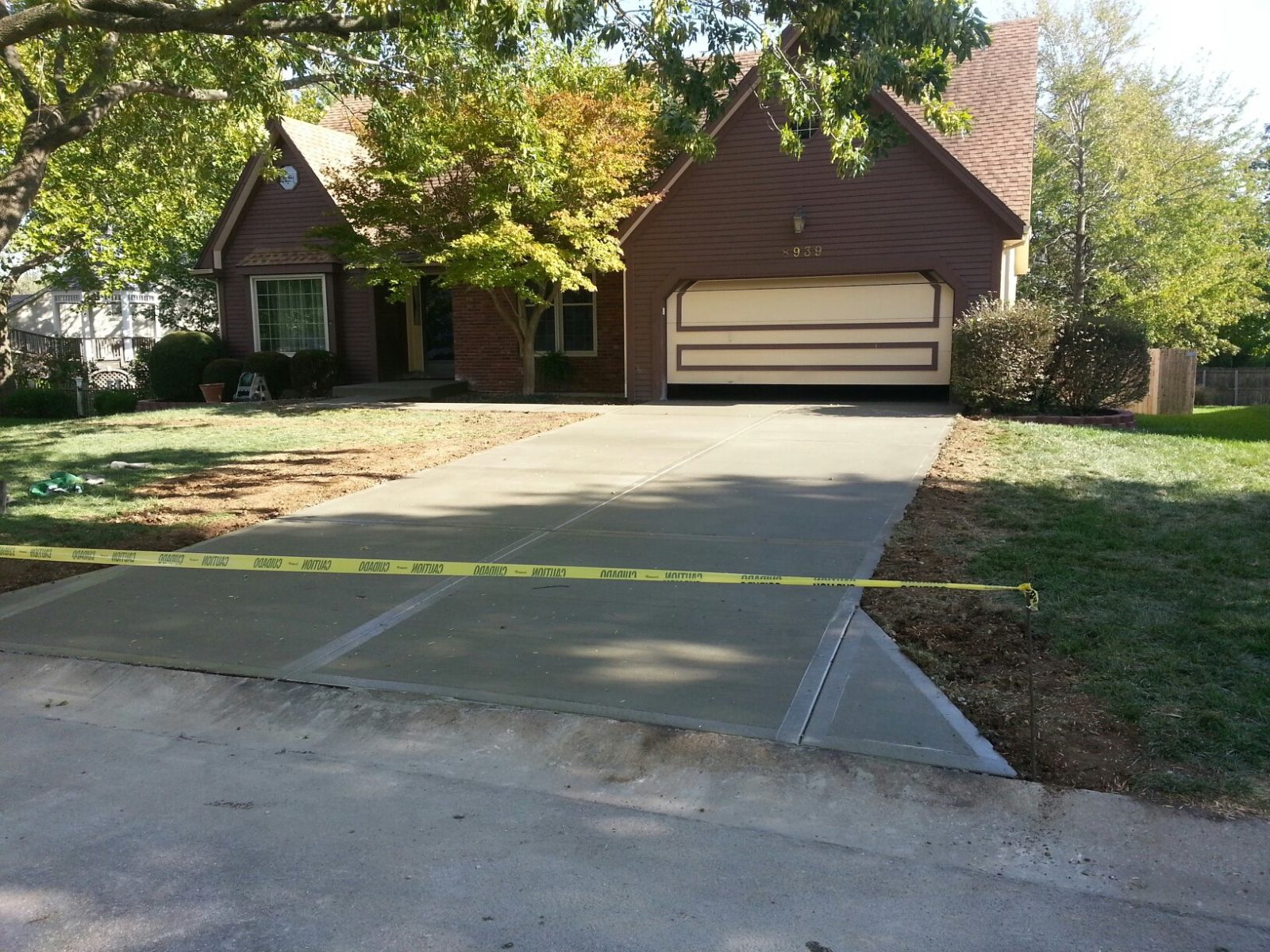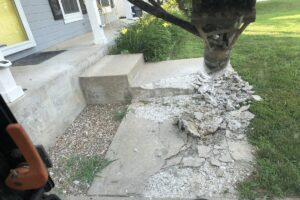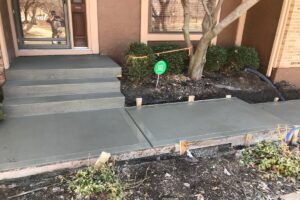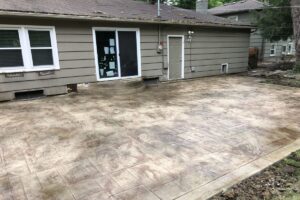Despite how long-lasting driveways are designed to be, a driveway needs to be replaced eventually. How do you determine when that time has come? How do you tell the difference between needing a minor repair and having to replace the entire drive?
One thing that’s good to know is that there are clear signs when it’s time for a driveway replacement. Read on to learn more about these circumstances and what to expect from the process.
Are You Having Drainage Issues in Your Driveway?
Proper yard drainage is essential in the Kansas City area, and the combination of poor drainage and driveway issues set the stage for serious problems. If your driveway is uneven or has a slope, you might notice water pooling in the middle of the driveway. One of the most significant problems is that the water will weaken the driveway where it accumulates.
Curbing and inlets can often direct the water out of the driveway if the damage is otherwise minor. However, measures like this can often be too little, too late. If there is a lot of damage to the driveway, replacement may be the only viable option.
A Driveway Needs to Be Replaced If There Are Lots of Potholes
Of all the problems indicating that a driveway needs to be replaced, potholes are the worst. Potholes can cause tire or suspension system damage. Suspension system damage is particularly expensive and risky to drivers’ and passengers’ safety.
Potholes form when the ground underneath a driveway either expands or contracts. The ground movement weakens the driveway material. As the material weakens, cracking or crumbling is inevitable, with the result being a pothole.
Sometimes, driveways have cracks that resemble potholes. Because these cracks are not actual potholes, they are easier to repair. However, knowing that the problem is a crack rather than a pothole is important.
When the problem is a pothole caused by expanding and contracting ground, repair is not going to be a viable option. Although filling the pothole will provide a temporary fix, the underlying problem will return eventually. The ultimate fix for situations involving potholes is to replace the driveway entirely, which puts a stop to the ground movement that is contributing to the problem.
Having a Number of Surface Cracks in the Driveway
For many homeowners, their driveway’s surface is somewhat out of sight, out of mind. One of the things that never occur to many homeowners is to take a closer look at their driveway’s surface. Taking a closer look at the driveway every once in a while can help you spot potential problems requiring attention.
Whenever there are cracks forming in the driveway, this indicates trouble that will require attention at some point. Gas, oil, de-icing salt, and other common outdoor chemicals may penetrate your driveway and worsen any cracks present. The annual freezing and thawing cycle that happens each winter is also a major contributor.
Sometimes, smaller cracks are relatively easy to repair if caught early enough. If cracks have had time to become too wide, deep, or long, they can create more serious problems that require taking different steps. Once the cracks have become too serious, replacing the driveway will be the best course of action.
What Do You Need to Do to Have Your Driveway Replaced?
When you need a new driveway, it’s important to use a contractor that has the necessary experience. A new driveway is a major undertaking, and when in the hands of an experienced concrete professional, you have better assurance of everything working out as expected.
Johnson Concrete handles all your home’s concrete needs, including new driveways. If your driveway needs to be replaced, contact us for your needs today.




